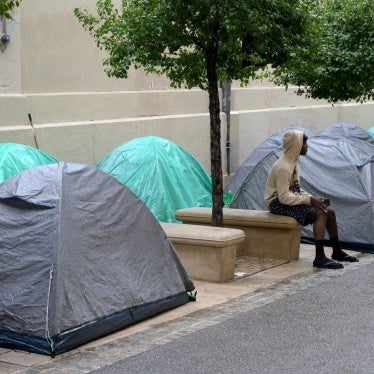An increasing number of Syrian asylum seekers are trying to reach Europe. This is both a testament to the horrors of the conflict in their country and a reminder that the EU could and should be doing much more to offer safe haven to Syrian refugees.
Some 400 Syrians reached Sicilian shores yesterday on several different vessels, including roughly 100 rescued from a boat in distress by the Italian coast guard. Arrivals by sea are up compared to last year, with an estimated 24,000 having reached Italy since the beginning of the year. Syrians are roughly one fourth of sea arrivals to Italy.
Other countries on the EU’s external borders are also seeing increased arrivals. A clamp-down since 2012 on the Greece-Turkey land border, a traditional route into the EU, has forced many to cross the Aegean Sea to the Greek islands. There have been worrying allegations of the Greek coast guard pushing boats back towards Turkey. Bulgarian police arrested some 50 Syrians when they tried to cross the border from Turkey on Tuesday night, according to news reports.
Syrians, as so many others, face hardship and danger trying to reach Europe. The deaths of a six-year-old girl in the Aegean Sea in May and a 22-year-old woman during the crossing to Sicily just a few days ago are wrenching reminders of the perils of sea journeys. Land crossings are safer, but asylum seekers and migrants may be refused entry, detained, or confront poor or nonexistent reception centers.
Those who succeed face a protection lottery, due to spotty implementation of EU asylum standards as well as the lack of a common approach specifically for Syrians fleeing the conflict. While Sweden recently announced it would grant permanent, rather than temporary, residence permits to all Syrians, Syrians who reach Greece still face high hurdles to lodging asylum claims, and for those who do get a first interview, the Greek asylum approval rate last year for all nationalities was less than 1 percent. Germany welcomed the first group of 5,000 Syrians it has committed to resettling from countries neighboring Syria, while other EU member states have made no resettlement offers whatsoever, or offers so paltry they will do nothing to relieve the burden Lebanon, Jordan, and Turkey are bearing.
Italy recently increased its reception capacity from 3,000 to 16,000, and called for more solidarity from other EU countries. Too often, EU solidarity has meant uniting to fortify the fortress that keeps asylum seekers out. The Syrian refugee crisis should compel EU member states instead to respond in a spirit of generosity and compassion.








